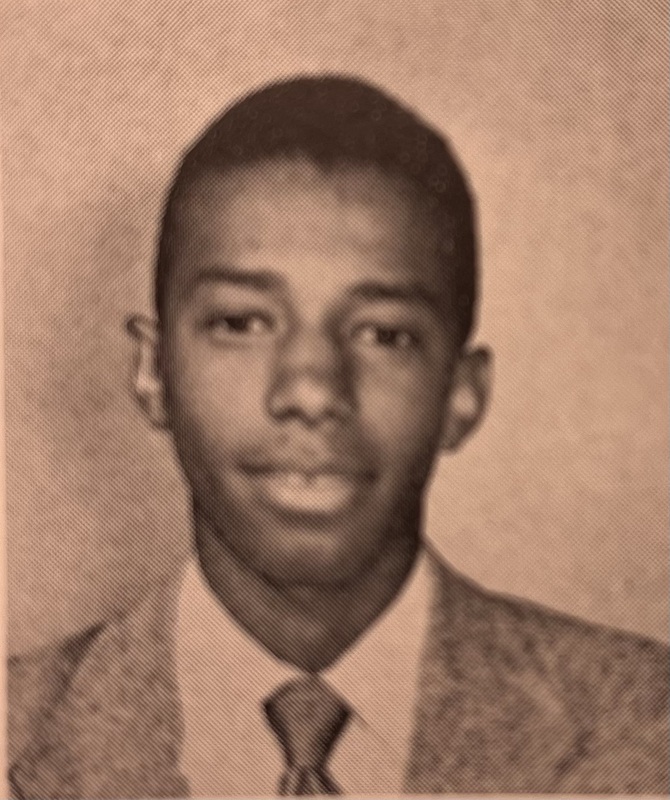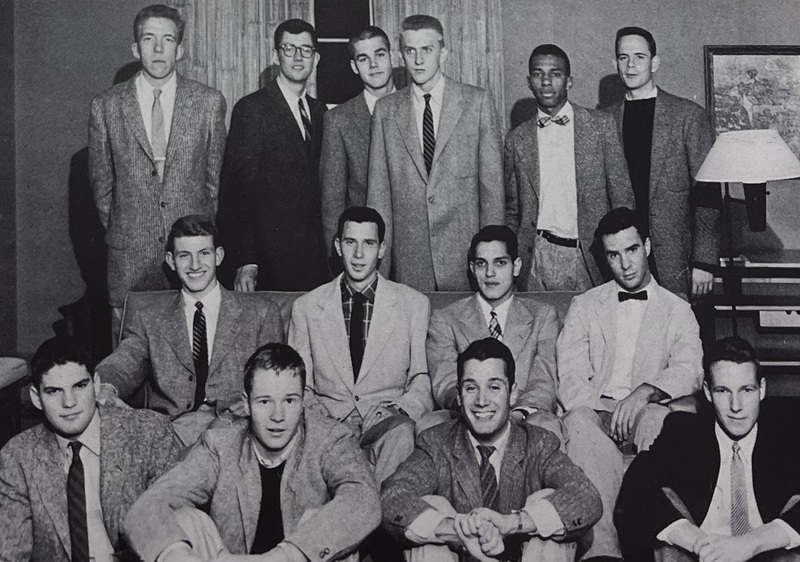One Among Four: Dartmouth Black Life Before Brown vs. Board of Ed
>“Despite the fact that I grew up in a segregated community, and went to segregated schools, I've always regarded people as people. And one thing I knew about studying history was that white people acted just as wise and just as foolish as Black people. And so, when I entered Dartmouth College, it was not a problem for me. It was for some of the Black students that were my contemporaries, but it never was for me. I'm not quite sure how to account for that except because of my study of history. It wasn't religion, really. It was history that enabled me to deal with people as people regardless of what they were.”—Rev. Warner Traynham, 2022
Early Transitions
When Warner Traynham first stepped onto Dartmouth College’s campus in 1953, he had only ever been in a class with white students once in his life. Traynham grew up in segregated Baltimore, where he attended Frederick Douglass High School. He was an only child, the son of Hezekiah, a public school teacher turned principle, and Virginia Traynham, a stay at home mom. As he puts it, he was a “good and enthusiastic student,” known by many of his teachers as the son of his father. “I don't know what my life would have been like if I hadn't been,” he remarked.
Despite growing up in the segregated South, at a time before the Supreme Court had ruled on the case Brown vs. Board of Education, he told me a story about a unique classroom experience he had the year before he became a member of the Dartmouth community. “I have told people that the first time I ever sat in a class with white students was when I entered Dartmouth because before that, I went to segregated schools,” he says. “Before that I did go to segregated schools, but that was not the first time that I ever sat in a class with white students. In senior high school, I think it was probably the last year of senior high school, there was a teacher strike in Baltimore, and the public school system decided […] to put an integrated class on television.”
However, Traynham relied more on his study of history than this short-lived experience in an integrated classroom to ease his adjustment to life at Dartmouth. “One thing I knew about studying history was that white people acted just as wise and just as foolish as Black people,” he said while talking about his transition to Dartmouth. “It was history that enabled me to deal with people as people regardless of what they were.” As only one of four Black students matriculated into the class of 1957, he had to deal with people as people throughout almost every aspect of his life at Dartmouth, perhaps every aspect but his freshman dorm. “At the time, the administration at Dartmouth College put Black students with Black students in freshman class,” he said.
Despite his love of history, Traynham studied philosophy at Dartmouth. The story about his decision to apply to Dartmouth and then to major in philosophy is one of Traynham’s favorite stories. He tells it well:
“I met a fellow at church who went to Hamilton College ... And I also met a fellow who was a neighbor that I had never seen before, who went to Dartmouth. Each one of them spoke up for their college. As a result, I applied to only two colleges: Hamilton College and Dartmouth College. […] My high school counselor told me something I was not aware of, and that was that there was a law on the books in the state of Maryland that said —remember this is a segregated state in 1953 — if there was a Black student who wanted to major in a subject which was offered at the white school to which he could not go, that would have been the University of Maryland in College Park, and was not offered in the Black college to which he could go, which would have been Morgan State College, the state of Maryland would pay his tuition to any school in America. […] What I did first was get the catalogs from the University of Maryland and Morgan State College. I would ordinarily have majored in history. […] But both those schools had history majors so that was out. But then I discovered that the University of Maryland had a philosophy major, but the Morgan State College did not. So, when I entered Dartmouth College, I knew the state of Maryland was going to pay my tuition for four years at Dartmouth, and I also knew that I had no choice except to major in philosophy because that's why they were going to pay my tuition."—Rev. Warner Traynham, 2022
Finding Community: From Religious Life, to Theater, to Greek Life
When talking about the communities in which he was a part, Traynham’s primarily highlighted his personal successes, focusing very little on the impact that his race had on his social experience at Dartmouth. “I enjoyed my Dartmouth experience across the board, really,” he said. “At least I cannot remember any racist problems. I may have just suppressed them over half a century. I've had plenty of time to forget them if they were any. My experiences were really quite positive.” At one moment, he did highlight a peer’s race, mentioning that “he was a white student, obviously,” but overall, Traynham’s experiences as a Black student were not what he wanted to highlight throughout our conversation.
Outside of classes, Traynham was involved with religious life on campus, he engaged with the arts, and he was a member of a fraternity. Traynham turned to religion through the local community’s episcopal church and the Dartmouth Christian Union (DCU), where he made connections to both community members and other students. While he initially became involved in the DCU by engaging in community service work, he eventually found himself spending time talking theology in the basement of College Hall with other members of DCU alongside a faculty member who worked with them, George Cobflesh.
Traynham only referenced his race in relation to practicing religion at Dartmouth once, while talking about the “white church”: “I remember my surprise, when I first came to Dartmouth, and people started talking about the white church. The white church was painted white. That's why it was called the white church. It was not a white church because only white people went there, like the fraternities, but it was a surprise for a Black person to hear about the white church at Dartmouth College”
Additionally, Traynham was a crucial figure to the campus theater group the Dartmouth Players, where he helped a lot in the prop room, and he was a member of the Jewish fraternity Tau Epsilon Phi. He spoke of both of these experiences as truly rewarding ones.
To learn more about Traynham’s experience in a fraternity and about the campus culture of Greek life during the late 50s, you can travel to the next page.


